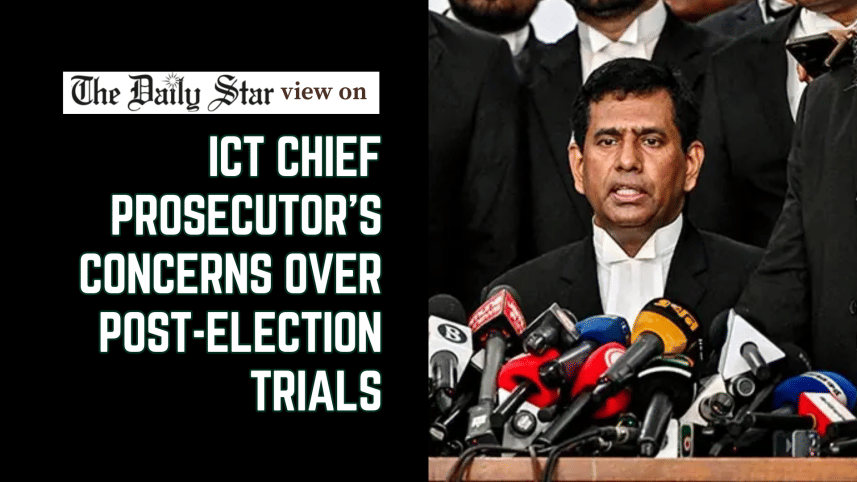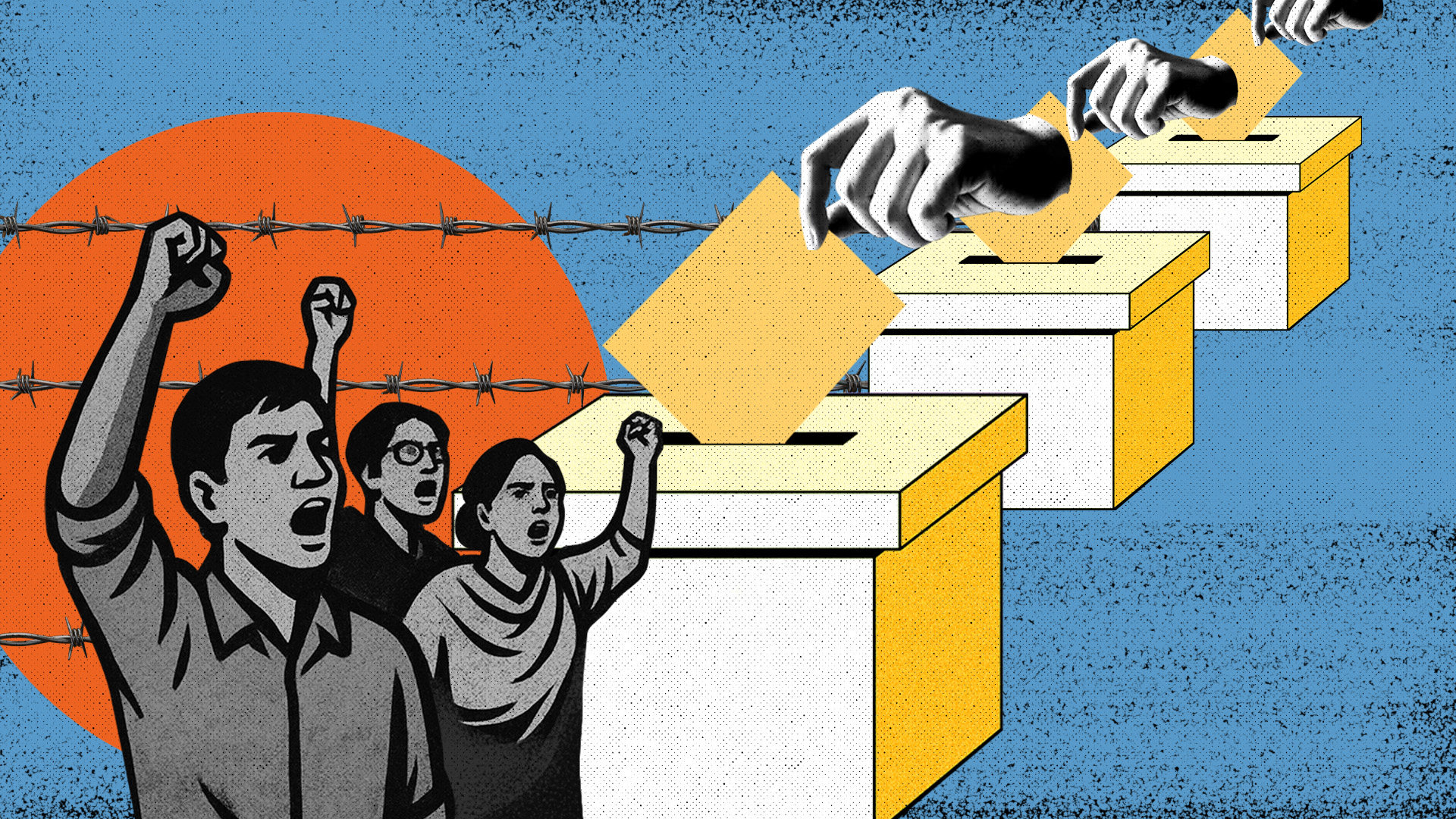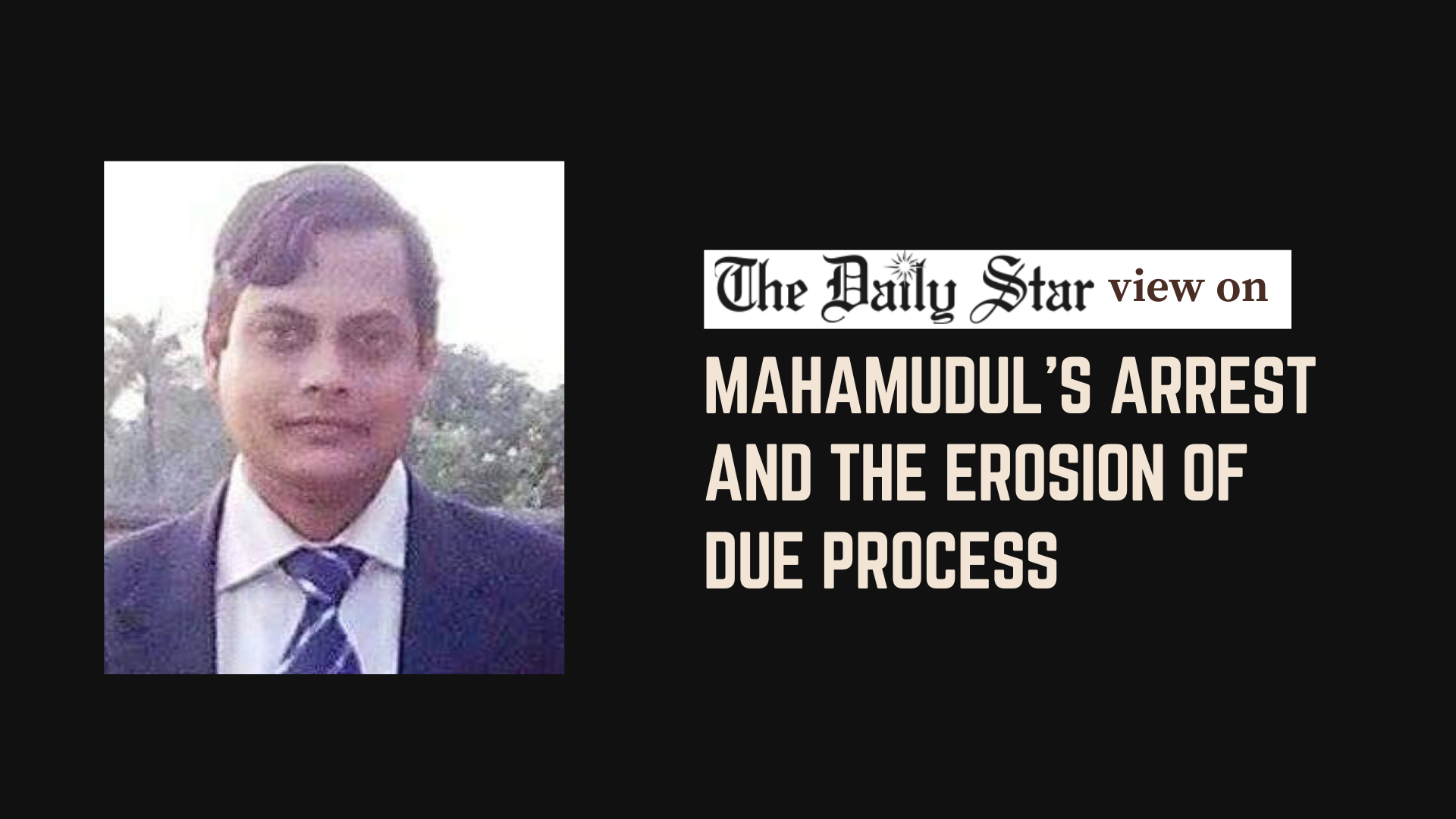Concerns raised by ICT chief prosecutor warrant scrutiny

Given our political history, there could be some substance in the fears that a political administration may not be as unbiased in the conduct of July trials as a non-political interim government. But compromising thoroughness in favour of expedited trials is not the answer either. However, the apprehension aired at a recent event by the chief prosecutor of the International Crimes Tribunal—that the next government may not continue the trials or may not continue with the current prosecution team—indicates a more serious concern. If it happens, he suggested, the justice process may stall. From our vantage point, this seems a bit premature and alarmist. And for the prosecution team to be bogged down by this fear, and consequently to "rush" their work, is deeply concerning.
There are less than six months left before the planned election in February. The Election Commission has already announced a "roadmap," itemising all the preparatory steps to be taken to hold the polls in the first half of that month. But trials cannot be tied to a timeline as it may compromise them. While there is clearly public pressure to hurry the trials of the crimes committed during the July uprising as well as enforced disappearances perpetrated under the Awami League regime, it is extremely important that prosecutors remain unswayed by this so that the trials can provide the justice that both the victims and the accused deserve. Otherwise, they risk being discredited both at home and abroad.
There are less than six months left before the planned election in February. The Election Commission has already announced a "roadmap," itemising all the preparatory steps to be taken to hold the polls in the first half of that month. But trials cannot be tied to a timeline as it may compromise them. While there is clearly public pressure to hurry the trials of the crimes committed during the July uprising as well as enforced disappearances perpetrated under the Awami League regime, it is extremely important that prosecutors remain unswayed by this so that the trials can provide the justice that both the victims and the accused deserve.
That said, prosecutors must ensure that the process is not lengthened unnecessarily. The higher leadership, both present and upcoming, must also allow it to run its course while removing existing roadblocks, including the dubious cases that are only overwhelming those involved. The July trials, for example, have had to encounter many such cases. The chief prosecutor is right to highlight the caseload, "There are more than 1,800 cases of enforced disappearances, each with multiple layers. Is it realistically possible to investigate them all thoroughly in just a few months?" He adds, "Whoever comes to power next must understand why this process must continue. If they fail to grasp that, there could be no greater misfortune for the nation."
It is heartening to know that the government is taking steps to address some of the concerns. Speaking at the same event, the law adviser assured the Commission of Inquiry on Enforced Disappearances, which is coordinating with the tribunal on such cases, that cases lacking evidence would be withdrawn (except those related to militancy or terrorism). The government, he said, is also expediting the enactment of the draft Enforced Disappearance Prevention and Redress Ordinance, 2025 to transfer investigative responsibility to the National Human Rights Commission. So, there are reforms and amendments necessary to expedite ongoing investigations, which the government must undertake without delay. As for the questions raised about the commitment of a future political government, we can only strengthen institutional safeguards but, in the end, we must trust that they will have the sense to help, rather than disrupt, the justice process. But under no circumstances can the trial process be made questionable.



 For all latest news, follow The Daily Star's Google News channel.
For all latest news, follow The Daily Star's Google News channel. 

Comments